Christianity
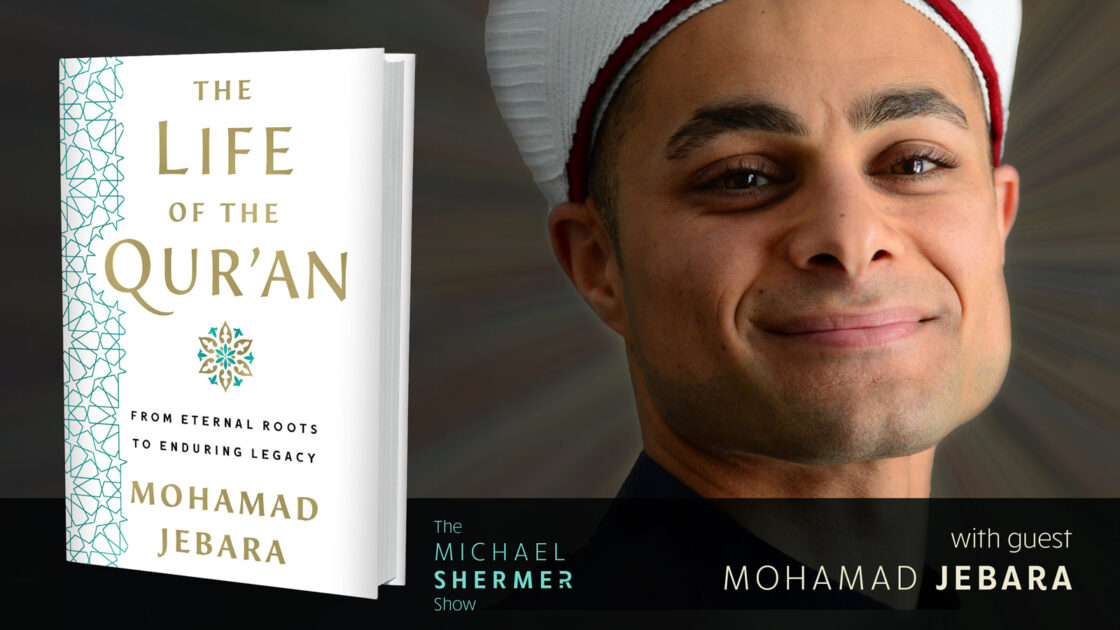
Shermer and Jebara discuss: who wrote the Qur’an and why • translation and interpretation • Is the Muslim world stagnating? How does this book aim to help? • semitic mindset • Many Westerners believe that the Qur’an endorses violence, Jihad, and Sharia Law over secular laws and constitutions. What does it really say? • Has Islam had its Enlightenment? • Does Islam and the Muslim world need reforming? • women in Islam • what percentage of Muslims want Sharia Law, and where in the world?
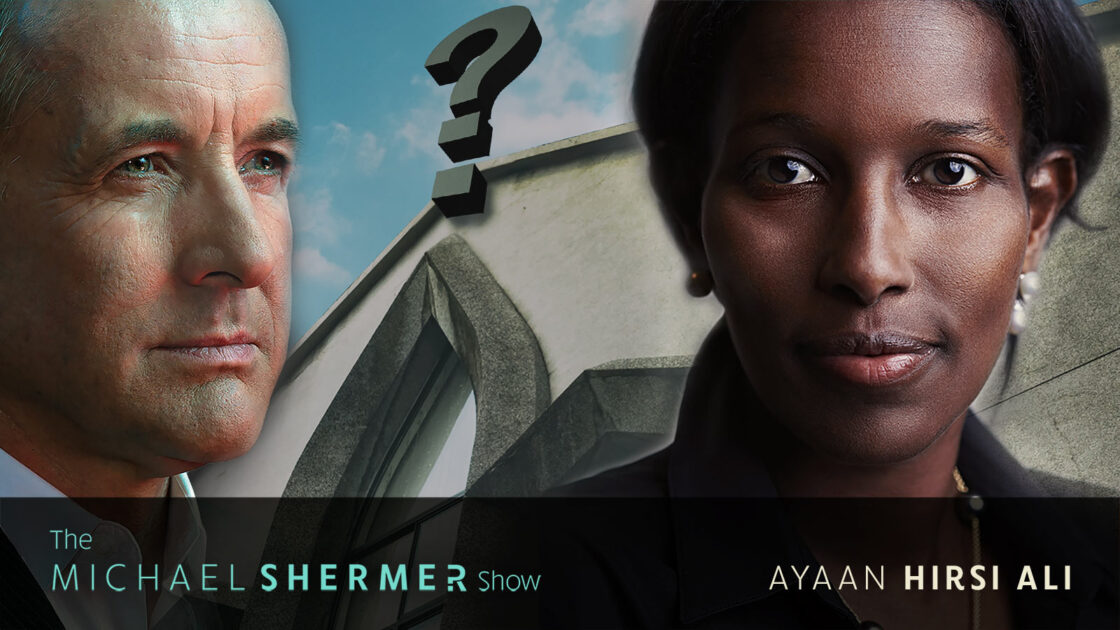
On November 11, 2023, my friend, colleague, and hero Ayaan Hirsi Ali released a statement explaining “Why I am Now a Christian”. What follows is my response, “Why I am Not a Christian,” and why in any case the alternative to theistic morality is not atheism but Enlightenment humanism—a cosmopolitan worldview that places supreme value on human and civil rights, individual autonomy and bodily integrity, free thought and free speech, the rule of law, and science and reason as the…

Shermer and Ehrman discuss: Ehrman’s religious journey • Who wrote the Bible and why? • how to read the Bible and the book of Revelation • Who wrote Revelation and why? • why Jesus spoke in parables • why worry about climate change if the world is going to end soon? • David Koresh and Waco • Reagan and end times politics • how Jesus became a capitalist and militarist • faith healers, televangelists, and other Christian con artists • Christian ethics and what Jesus really said about the poor…
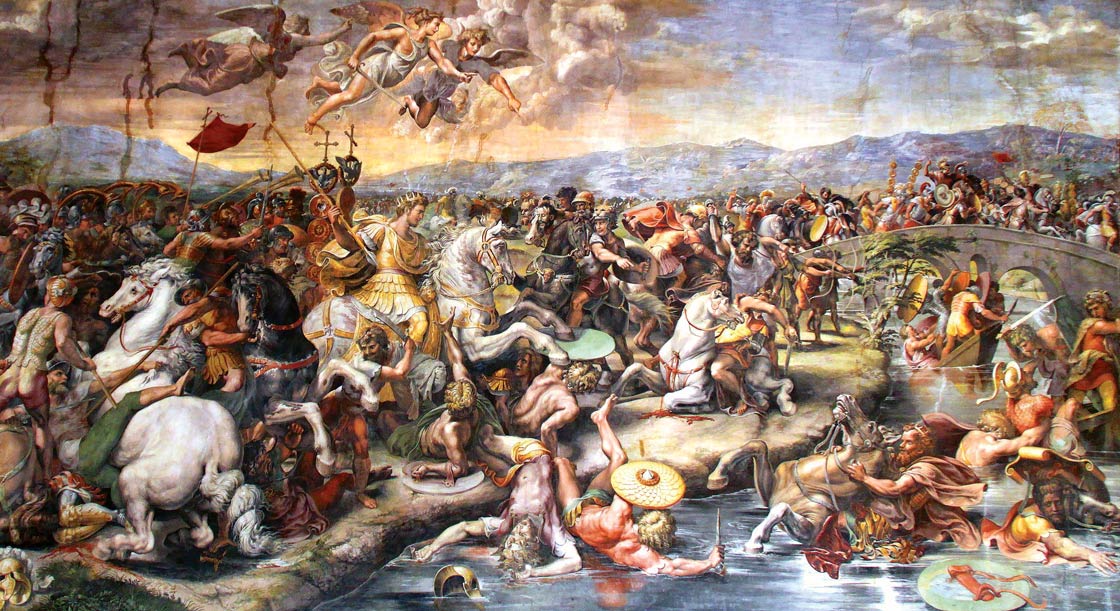
In the Fourth Century, when the Emperor Constantine made the Roman Empire Christian, he created an unstable amalgam. The tenets of Christianity could only be made to support the exercise of political power through torturous forms of theology and logic. Fifteen centuries of violence would eventually cause the combination of Christianity and the state to decompose, forming secular nations in the process. Nationalist leaders, their authority upheld by the gospels of power written by Machiavelli and Nietzsche, could wield military…
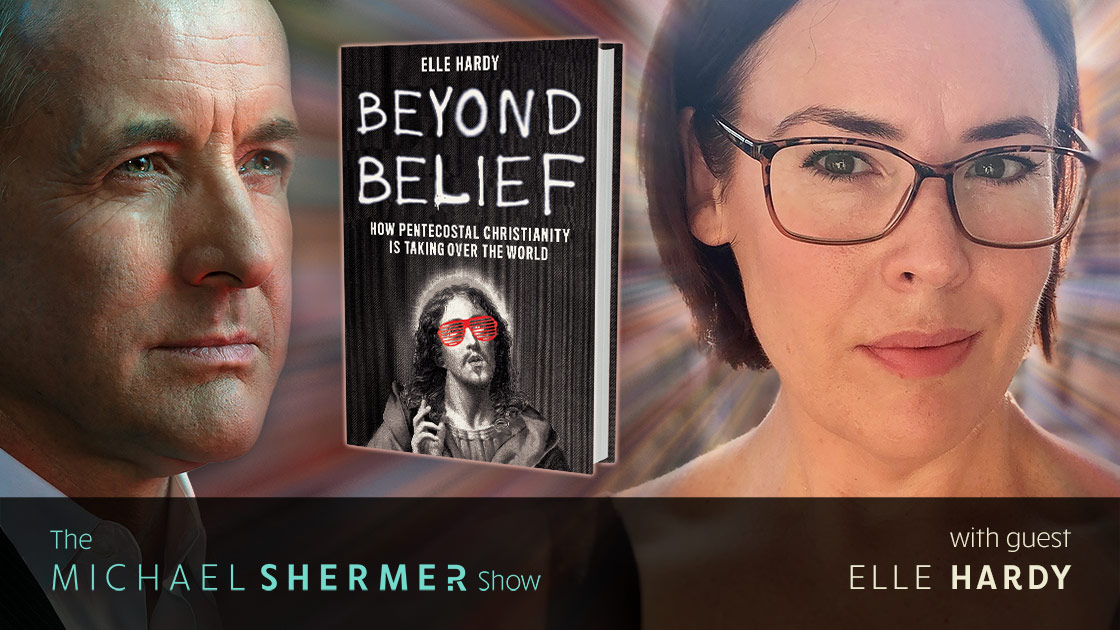
Shermer and Hardy discuss: Hardy’s religious journey (raised Catholic, now agnostic) • origin of Pentecostalism and its biblical basis Pentecostalism in Korea North and South, and Israel • the structure of the Pentecostal church and how it differs from other churches • Seven Mountain Mandate • how religions grow • pentecostalism and politics • the psychology of the believer • dispensationalism and the Rapture • prophecy • glossolalia • snake handling • eschatology and end-times theology • sin and redemption • prostitution • Jordan Peterson and…
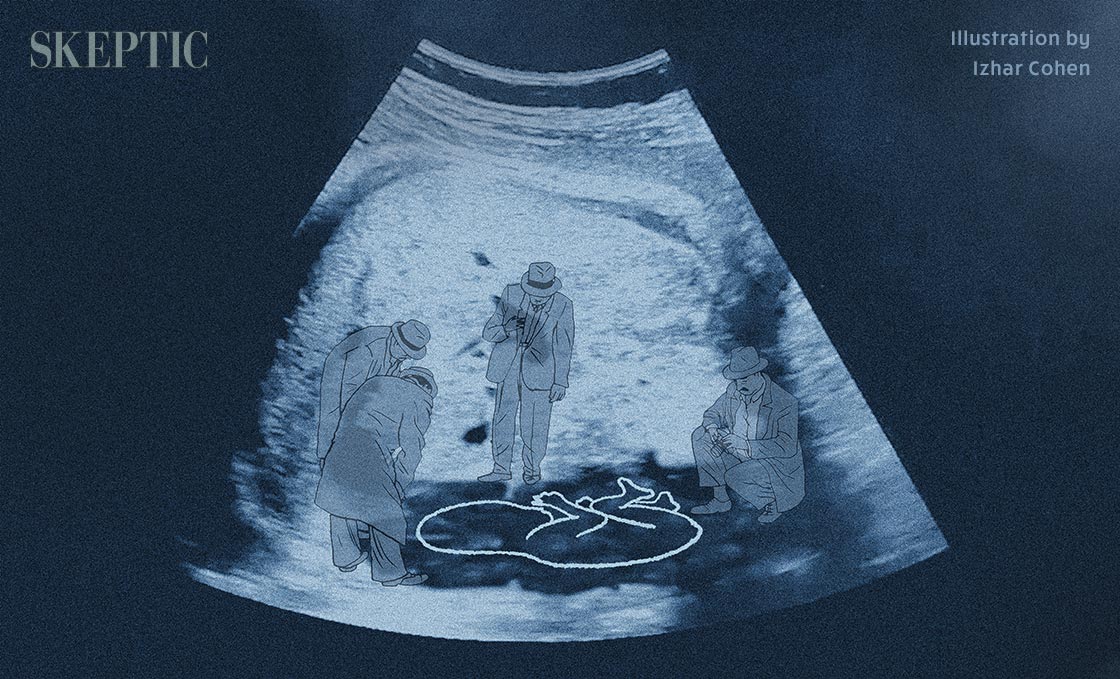
Abortion is one of the most relevant issues of our time. As with many other subjects capable of arousing strong emotion, people tend to assume that the U.S. public is evenly divided, in this case between the “pro-choice” and “pro-life” positions. And some frequently cited polling would lead you to believe that it is indeed […]

Holy relics like the Ark of the Covenant, Moses’s Ten Commandment stone tablets, the Holy Grail, the chalice from which Jesus drank at the Last Supper, The Spear of Destiny, and the like, are the stuff of myth, legend, Hollywood movies, and even Nazi villains, but what is the real story behind the myths? In this insightful analysis Skeptic magazine religion editor Tim Callahan reveals what we know and don’t know about these legendary icons.
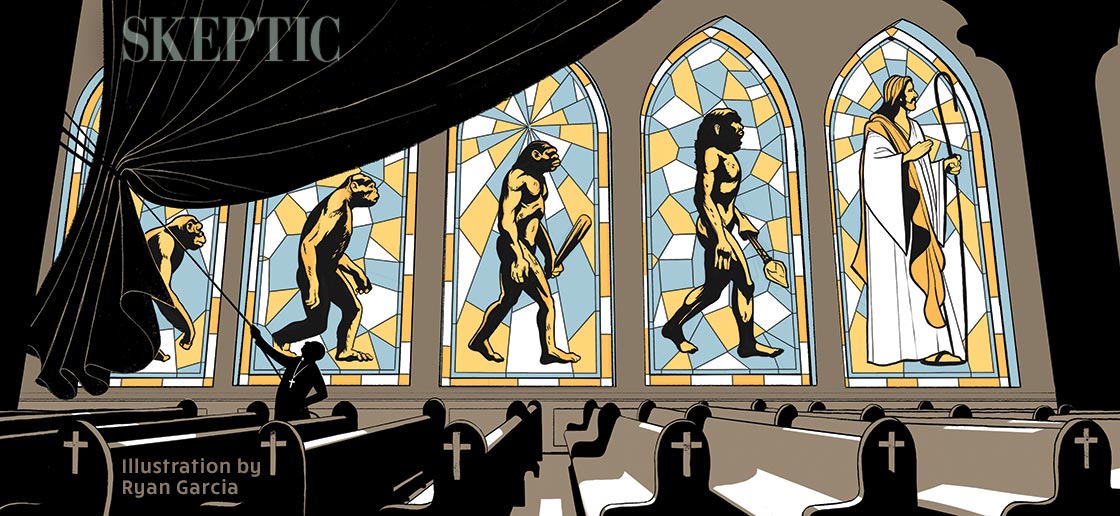
If you give Christians a choice between Jesus and Darwin by telling them that the theory of evolution means you have to be an atheist, they’re going to pick Jesus every time. In this article, Larry Arnhart argues that Christians should accept the theory of evolution not only because it’s true but also that it does not mean they have to give up their religion.
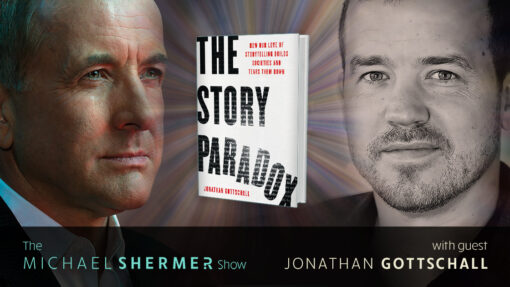
“How can we save the world from stories?” Michael Shermer speaks with Jonathan Gottschall about The Story Paradox: How Our Love of Storytelling Builds Societies and Tears Them Down. Gottschall reveals why our biggest asset has become our greatest threat, and what, if anything, can be done.
“How can we save the world from stories?” Michael Shermer speaks with Jonathan Gottschall about The Story Paradox: How Our Love of Storytelling Builds Societies and Tears Them Down. Gottschall reveals why our biggest asset has become our greatest threat, and what, if anything, can be done.
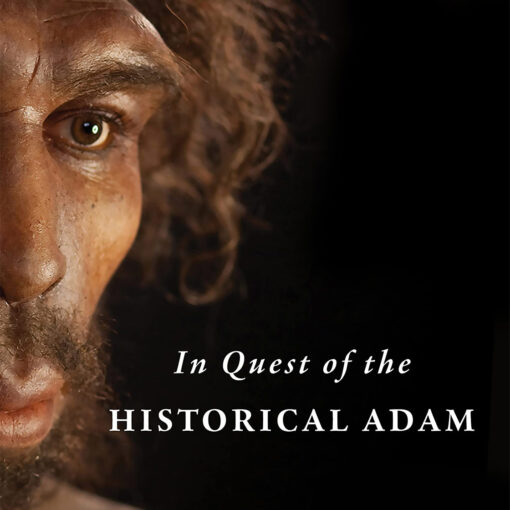
One of the most influential conservative Christian theologians goes all-in for evolutionary science and finds room for a Paleolithic Adam and Eve. This has left some schools of Christian orthodoxy scrambling to find a way forward. With any luck, they may start to reevaluate their opposition to evolution altogether.
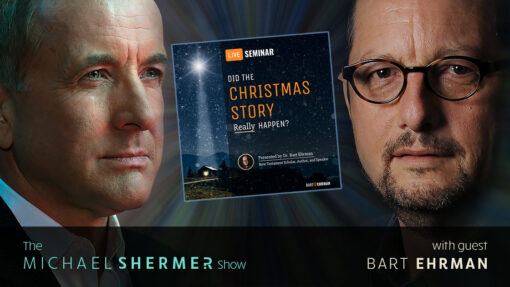
In episode 230, Michael Shermer speaks with renowned biblical scholar and historian Bart Ehrman about how Jesus became God and how Christianity grew from a few dozen followers at the time of Jesus’s death to over two billion followers today.
In episode 230, Michael Shermer speaks with renowned biblical scholar and historian Bart Ehrman about how Jesus became God and how Christianity grew from a few dozen followers at the time of Jesus’s death to over two billion followers today.
In episode 220, Michael Shermer speaks with Charles Foster about his book Being a Human: Adventures in Forty Thousand Years of Consciousness. Drawing on psychology, neuroscience, natural history, agriculture, medical law and ethics, Charles Foster makes an audacious attempt to feel a connection with 45,000 years of human history.
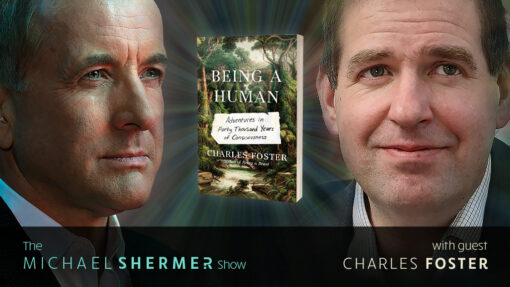
In episode 220, Michael Shermer speaks with Charles Foster about his book Being a Human: Adventures in Forty Thousand Years of Consciousness. Drawing on psychology, neuroscience, natural history, agriculture, medical law and ethics, Charles Foster makes an audacious attempt to feel a connection with 45,000 years of human history.
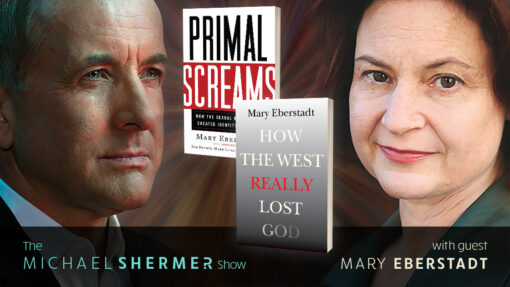
In episode 215, Michael Shermer speaks with Mary Eberstadt about the decline of religion in which Eberstadt presents her alternative theory for the “secularization thesis” (that the undermining of the family has undermined Christianity itself). In the second half, they discuss the rise of identity politics and how identitarians track and expose the ideologically impure, as people face the consequences of their rancor.
In episode 215, Michael Shermer speaks with Mary Eberstadt about the decline of religion in which Eberstadt presents her alternative theory for the “secularization thesis” (that the undermining of the family has undermined Christianity itself). In the second half, they discuss the rise of identity politics and how identitarians track and expose the ideologically impure, as people face the consequences of their rancor.
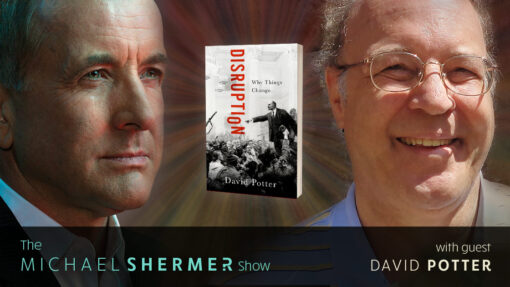
In episode 199, Michael Shermer and David Potter take a deep dive into disruptions. What are the conditions in which radical change happens? Is democracy in trouble? Not all radical groups are the same, and all the groups that the book explores take advantage of mistakes that have challenged belief in the competence of existing institutions to be effective.
In episode 199, Michael Shermer and David Potter take a deep dive into disruptions. What are the conditions in which radical change happens? Is democracy in trouble? Not all radical groups are the same, and all the groups that the book explores take advantage of mistakes that have challenged belief in the competence of existing institutions to be effective.
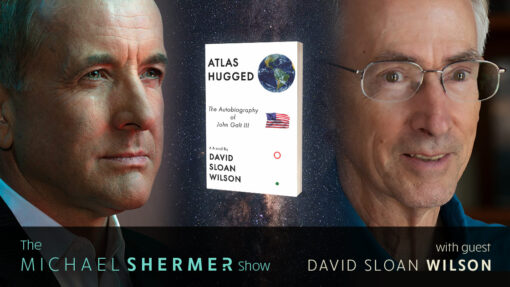
In episode 154 of The Michael Shermer Show, Michael speaks with renowned evolutionary theorist David Sloan Wilson about his new novel Atlas Hugged: The Autobiography of John Galt III — a devastating critique of Ayn Rand’s philosophy of Objectivism and its impact on the world.
NEXT →























